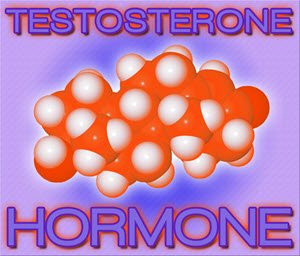Video Link: https://vimeo.com/293004562
Video Download: Click Here To Download Video
Video Stream: Click Here To Stream Video
Video Link: https://vimeo.com/293005182
Video Download: Click Here To Download Video
Video Stream: Click Here To Stream Video
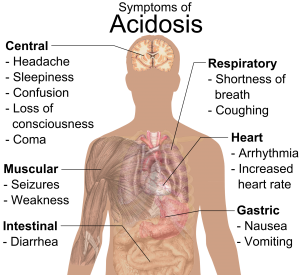
The Hidden Health Dangers of Acidosis
An Incredibly Important Yet Little Considered Aspect of Optimal Health
As you already know, there is a variety of moving parts that you have to keep track of to stay healthy—Your weight, your cholesterol levels, and your blood pressure to name a few.
There's one incredibly important aspect of human health that is often left out in the cold, in spite of its incredible importance.
It's central to helping your body control pain and to assist your liver to filtrate and function at its peak—Blood pH Level.
Understanding pH Level, Acidity, and Alkalinity
pH stands for Potential Hydrogen and represents a measure of alkalinity and acidity. The system uses water as a baseline.
The scale extends from 0 to 14, with 0 being the most acidic and 14 being the most alkaline. 7 is the pH of pure water.
As you can imagine, since the human body is composed primarily of water, it maintains a pH of close to 7: 7.35. One of the reasons why the skin is so important is that it supports the human body as a closed system so that it can maintain this specific pH.
What Is Acidosis and How Does it Negatively Impact Health?
 The majority of the body maintains a pH of around 7.35, but there is one part of the body that is specifically designed to operate at an increased level of acidity: the stomach.
The majority of the body maintains a pH of around 7.35, but there is one part of the body that is specifically designed to operate at an increased level of acidity: the stomach.
Since the stomach is responsible for breaking down food for digestion, it's very acidic compared to the rest of the body, with a pH of around 4.0. When the body consumes food and beverage that is more basic, it causes the stomach to increase its production of hydrochloric acid to compensate.
The body produces hydrochloric acid in a particular way, which is simplified below:
H20 + CO2 + NaCl -> HCI + NaHCO3
Our body combines carbon dioxide, water, and dietary salt to create the hydrochloric acid that the stomach uses to break food down. Sodium bicarbonate is a byproduct of this process.
When HCl is produced, it enters the stomach. Sodium bicarbonate, on the other hand, passes into the blood.
How Does Sodium Bicarbonate Influence Physiological Function?
Sodium Bicarbonate acts as what is known as an alkaline buffer. It helps keep the blood at a safe pH Level, protecting against the influence of acid.
If the body doesn't produce sufficient Sodium Bicarbonate, it can have trouble counteracting acids present in the blood, which can contribute to some different issues, such as kidney stones, high blood pressure, osteoporosis, and many symptoms associated with premature aging.
The blood is very slightly more fundamental than the body's average, and ideally maintains a pH of 7.38-7.42.
If blood pH falls outside of this specific range, it leads to health problems.
The Effect o Hydrogen Ions on Blood pH
Free hydrogen ions (H+) in the bloodstream can be a problem in excess. Just through standard processes in the blood a small amount of water (H20) loses hydrogen, which causes it to convert into ionic hydroxide (HO+).
Some of these free hydrogen ions pair up with water and become ionic Hydronium (H30+). Under most circumstances, the percentage of hydroxide ions and hydrogen ions stay identical. This doesn't have a primary or acidic effect upon the solution.
What is Acid?
Acidic compounds are any solution that causes hydrogen ions to divorce from their parent compounds.
When an acid is introduced to water, this causes the water to have a balance that is more acidic before, throwing off the natural balance. An acid acting on pure water leads to an acidic solution.
What Is a Base?
A base is any compound that draws free hydrogen ions. When a base is introduced to pure water, it draws up the naturally occurring hydrogen ions, creating a basic solution balanced toward hydroxide. This creates an alkaline solution.
What is the pH Scale and How Is It Derived?
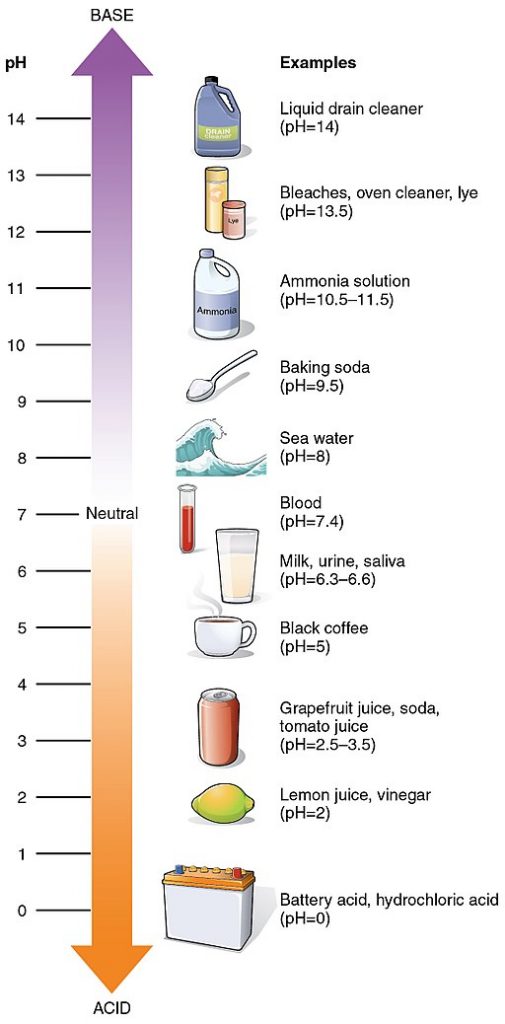 The pH Scale operates on what is known as a logarithmic scale, based upon the number 7. On a logarithmic scale, each point away from the baseline represents an order of ten times strength change. One of the most well-known logarithmic scales is the Richter Scale, which is used to measure the strength of earthquakes.
The pH Scale operates on what is known as a logarithmic scale, based upon the number 7. On a logarithmic scale, each point away from the baseline represents an order of ten times strength change. One of the most well-known logarithmic scales is the Richter Scale, which is used to measure the strength of earthquakes.
A category 4 is ten times stronger than a category 3, etc. This means that the further down the line that you get, the more immensely powerful that an earthquake is.
Regarding pH, the further away from 7 that the pH Level becomes, it becomes ten times as effective at distorting the hydrogen-hydroxide axis, dependent upon whether it is an acid or a base, respectively.
Logarithmic scales are designed in a way that makes it easier for the human mind to understand, and easier to express and work within scientific and mathematic notation. Soda, for example, has a pH level of 4, which makes it 10,000 times more acidic than water, and 1,000 times more acidic than saliva.
This is one reason among many why it is essential to limit your soda intake or even abandon the fizzy drinks altogether. On the other hand, stomach acid is 100 times more acidic than soda.
The Importance of Maintaining Proper pH Balance in Diet
Maintaining an ideal pH balance is incredibly essential to sustaining good health, and there are some factors that can impact the body's pH. In general, Americans tend to err on the side of Acidosis, which means that they have a blood pH level that is below the ideal level.
While it is possible to suffer from Alkalosis, it is quite uncommon in the American landscape, because the American lifestyle and dietary choices don't lead to a basic blood pH.
Acidosis is caused by many factors, some of the most powerful being a sedentary lifestyle, smoking, environmental toxicity, and diet.
Acidosis is associated with a variety of health-related problems, including migraines, elevated heart rate, nausea, seizures, fatigue, and loss of muscle mass.
It can even lead to confusion and shallow breathing if Acidosis is more severe. If the blood becomes too acidic, it can also induce a coma, though this is the result of more severe/acute health problems, which are immediately life-threatening.
Understanding how Acidosis Affects the Human Physiology
The further that your blood and organs get from ideal pH Levels, the more risk there is for health issues to arise.
It weakens your immune system and organic defenses against physiological disorder; it makes it aches and pains more noticeable and pronounced.
These are just some general examples. Read on to learn more about how Acidosis can affect other organs and systems:
Acidosis and Liver Health
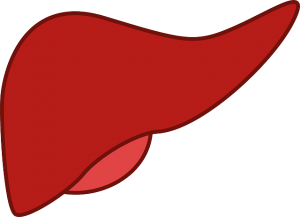 The liver is the body's primary tool for getting waste products out of the bloodstream and out of the body.
The liver is the body's primary tool for getting waste products out of the bloodstream and out of the body.
It's also responsible for taking what we consume in our diet and the hormones produced by our various organs and synthesizing it into new and vital products such as IGF-1 (which is derived by the liver from Human Growth Hormone from the Pituitary).
The liver is responsible for removing excess acids from the bloodstream and evacuating them through the kidneys. The liver is very good at its job, but Acidosis creates a situation where the liver may become so overworked that it loses efficiency, perhaps in a dramatic fashion.
Acidosis and Hearth Health
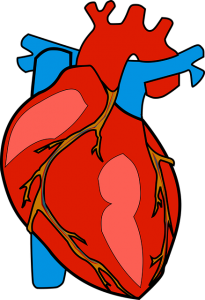 The heart is a highly at-risk organ. It's highly susceptible to health issues caused by acidosis, bad eating, bad habits, and low activity level.
The heart is a highly at-risk organ. It's highly susceptible to health issues caused by acidosis, bad eating, bad habits, and low activity level.
In the effect of acidosis, increased acid levels in the bloodstream make the heart have to work harder for every beat, which puts a strain on its ideal function.
Acidosis also hurts blood oxygen levels, which also makes the heart have to beat harder and more often to provide for oxygenation.
The reduced oxygenation of the blood and the overworking of the heart also leads to feelings of fatigue and exhaustion resulting from reduced aerobic capacity.
Acidosis and Kidney Function
The kidneys are intricately connected to the liver and are also subject to blood flow from the circulatory system.
Acidosis also negatively impacts kidney health, similar to liver function, and acidosis can impair renal function which causes toxins to build up in your bloodstream and makes you more at risk for issues such as kidney stones.
Acidosis and Cognitive Function
Among any animal, the human brain is one of the most energy-intensive organs ever conceived of by human nature. The brain requires an immense amount of oxygen to operate as it should. The mind is responsible for burning about 20% of the oxygen that you breathe. Acidosis suppresses oxygenation, which harms cognitive function.
Cognitive processes are highly at risk, including memory and concentration. This also puts you more at risk for mood disorders, unproductive sleep, and some neurological conditions.
Acidosis and Digestive Health
An overly acidic stomach leads to lots of problems, including indigestion, bloating, burping, and heartburn. Acidosis, combined with foods that are high in acid content, can exacerbate these issues.
Furthermore, Acidosis has a powerfully adverse effect on the pancreas, which is responsible for converting blood-glucose from the diet into usable energy. Long-term acidosis can even kill pancreatic tissue.
An Alkaline Diet is a strong net-positive for digestive health because it promotes the proliferation of healthy gut bacteria, which provide a litany of benefits for overall health and wellness.
The Effect of Acidosis on Cancer Risk
Acidosis has a negative impact on cancer risk primarily because it promotes inflammation. A diet high in acidic foods can encourage inflammation, which does have a link to cancer risk.
Loss of Mineral Density Resulting from Acidosis
To keep your blood in the ideal pH Range, your body has a litany of tools at its disposal.
For example, there are biological mechanisms to draw minerals from your diet and even from your internal organs, such as your bones, to keep blood pH in the healthy range.
To fall entirely out of this field is life-threatening, and your body will do whatever it takes to maintain blood pH. In the long term, Acidosis can lead to dry skin, brittle nails, and loss of hair, as well as the loss of bone mineral density.
The Link Between Acidosis and Premature Aging
As you can tell, all of these issues have a dramatic impact on normal physiological function. Many of our organs are only designed to take so much damage before they enter a compromised state, which involves what is known as the wear-and-tear theory of aging. Acidosis wears at the body not only at a systemic level but at a cellular level, causing it to degrade physiologically.
Furthermore, Acidosis also prevents the body from repairing and rebuilding effectively, which also leads to premature aging, though these effects can often be mitigated or treated.
Is Acidosis Negatively Influencing Your Health?
Acidosis is a widespread issue in American health, and there is a significant chance that acidosis is hurting your wellness. The human body is almost highly sophisticated and designed to sustain itself, but Acidosis puts an immense strain on the closed ecosystem of the human body.
Luckily, there are lots of things that you can do to adjust your lifestyle in a way that promotes improved pH Balance.
How to Ward off Acidosis with Smart Lifestyle Choices!
It's not incredibly complicated to promote improved acid/alkaline balance; it's just that most people don't think to make the changes necessary to improve their health in such a manner. It's a combination of staying active, eating smarter, and drinking lots of adequately sourced water!
Over time, as your body doesn't have to work as hard to promote an ideal pH Balance, your tastes will even adapt, which will make it even easier to stick to the diet.
With an Alkaline diet, the focus is not on abandoning Acidic foods altogether, but to eat a healthy balance of foods that tends to be more Alkaline as a whole.
As your body acclimates to your new diet and lifestyle, you'll experience a whole host of benefits as your body can expend its energy on other priorities. You have the potential to lose weight, increase energy levels, improve focus, and even experience healthier hair and smoother, softer, silkier skin!
Eat Better to Overcome Acidosis
What goes in affects what comes out. What you eat is centrally crucial to promoting healthy acid/base balance.
The American diet is heavily weighted toward acidic foods such as sweets, grains, certain dairy products, and meat. Americans also tend not to eat enough foods that are high in Alkalinity, such as spinach, lettuce, and cucumber.
To keep your pH Levels adequately balanced, you just have to take some steps to minimize your consumption of foods that lead to Acidosis while increasing your intake of those foods which increase Alkalinity:
Foods that Increase Acidity
- Alcohol
- Mustard
- Veal
- Eggs
- Carbonated beverages
- Sodas
- Ketchup
- Pickled veggies
- Canned Fish
- Fruit Juice
- Artificial sweeteners
- Milk
- Sourdough Bread
- Beef
- Corn Chips
- White Bread
- Cheese
- Yogurt
- Mayo
- Coffee
- Pork
Foods that Increase Alkalinity
- Beets
- Barley Grass
- Lettuce
- Navy Beans
- Lima Beans
- Raddish
- Alfalfa
- Garlic
- Avocado
- Ginger
- Spinach
- Oregano
- Green Beans
- Celery
- Cabbage
- Kale
- Cucumber
When Avoiding Acidosis and Promoting Optimal Health, Balance is Key
You may notice that many of the options in the Acidosis list, such as yogurt, have some highly beneficial qualities in spite of harming Acid/Alkaline Balance. You don't have to avoid the foods in the first list altogether.
Your diet gameplan is essential to reduce the consumption of foods on the top menu and eat more of the foods on the bottom list. Luckily, many (though not all) foods in the Alkaline list are low in calories and high in nutrients.
By working from both sides, you can still eat the foods you love while combatting your underlying pH Balance issues!
Drink More Water to Relieve Acidosis
 About acidosis, there is a widely spread myth regarding tap water and similar sources of water.
About acidosis, there is a widely spread myth regarding tap water and similar sources of water.
Many websites and companies sell Alkalized Water or sell filters that are designed to increase the Alkalinity of water. In reality, American tap water is slightly alkaline already, generally with a pH of around 8. You may want to avoid bottled water, however, as it tends to have a pH of approximately 6.
On the other hand, food and drinks are not considered acidic until they fall beneath a pH of 4.6.
It is still essential to drink lots of water every day because this does help your body digest foods more efficiently and helps keep your stomach's pH at 3.5, which is ideal. Not drinking enough water can cause pH levels to drop in the stomach.
Exercise to Reduce the Risk of Acidosis
As we mentioned earlier, exercise helps the body retain a healthy pH Level with less effort, because it promotes oxygenation of the blood. Furthermore, exercise also causes Hydrogen Ions to bond to muscle tissue, which inhibits their negative influence on blood pH.
By staying active and engaging in regular cardiovascular and anaerobic exercise, you can combat Acidosis with a 1-2 punch while also improving your energy levels, overall fitness, and more!
Our Hormone and Wellness Clinic Will Help You Make the Best Choices for Your Health!
At our Licensed HRT Clinic, we are aware of the full range of factors that can negatively influence your long-term wellness. Rather than merely treating illness, we focus on improving welfare through positive health and lifestyle changes, along with Hormone Replacement Therapy Strategies such as HGH Injection Therapy and Low-T Treatments for men.
We work with you to reveal the best way to improve the total health of your body. Allow our Hormone Specialists and Endocrinologists to lead the way in promoting a new and healthier you!
References
Aihara, Herman (1986) Acid & Alkaline, Orville, CA George Oshawa Macrobiotic Foundation
Johnson, Ben (2011), Healing Waters, Square One Publishers
McCauley, Bob, (2006), The Miraculous Properties of Ionized Water, Spartan Enterprises
Contact Us Today For A Free Consultation

- Question: What Makes Men Sexy to Women? Answer: Low Stress, High Testosterone, Strong Immunity - Testosterone Therapy [Last Updated On: June 17th, 2024] [Originally Added On: February 29th, 2020]
- Low Testosterone Levels Cause Health Woes -- Testosterone Prescription [Last Updated On: May 14th, 2024] [Originally Added On: March 11th, 2020]
- Co-Sleeping with Baby Drops Men’s Testosterone Levels [Last Updated On: June 6th, 2024] [Originally Added On: March 21st, 2020]
- A Great Way to Boost Your Testosterone? Get Married! [Last Updated On: December 17th, 2023] [Originally Added On: April 1st, 2020]
- Five Myths About Low Testosterone And Testosterone Therapy — Testosterone Prescription [Last Updated On: April 29th, 2024] [Originally Added On: April 8th, 2020]
- Testosterone Reduces Group Think, Cooperation, and Less Sheep-Like Mentality [Last Updated On: August 8th, 2024] [Originally Added On: April 25th, 2020]
- Testosterone, Viagra not a winning combination for erectile dysfunction - Testosterone Prescription [Last Updated On: November 25th, 2024] [Originally Added On: April 30th, 2020]
- A Disturbing Trend: Testosterone Levels Falling Even Lower in Adolescent Males [Last Updated On: August 17th, 2024] [Originally Added On: May 31st, 2020]
- Low-T: Men With Low Testosterone Found More Likely to Die From COVID-19 AKA Coronavirus [Last Updated On: August 21st, 2024] [Originally Added On: June 12th, 2020]
- The Effects of Hypogonadism on Men and How to Fix It: Testosterone Replacement Therapy [Last Updated On: January 17th, 2024] [Originally Added On: June 14th, 2020]
- Testosterone Drives Ego, Reduces Cooperation — Testosterone Prescription [Last Updated On: February 29th, 2024] [Originally Added On: November 2nd, 2020]
- Testosterone Linked to Heart Disease -- Testosterone Prescription [Last Updated On: April 13th, 2024] [Originally Added On: November 18th, 2020]
- Testosterone Therapy Could Lower Diabetes Risk for Men – The Science is Promising! [Last Updated On: September 7th, 2024] [Originally Added On: February 19th, 2021]
- Who Would Have Thought? The Moon’s Cycles Affect Men’s Hormones Too! [Last Updated On: January 13th, 2024] [Originally Added On: April 23rd, 2021]
- Testosterone replacement therapy improves symptoms of metabolic syndrome - Testosterone Prescription [Last Updated On: November 24th, 2024] [Originally Added On: April 24th, 2021]
- The top ten testosterone booster supplements: A review [Last Updated On: November 12th, 2024] [Originally Added On: April 27th, 2021]
- Increase in testosterone drug use - Testosterone Prescription [Last Updated On: November 16th, 2024] [Originally Added On: April 29th, 2021]
- Men with higher testosterone tend to lie less, study suggests [Last Updated On: May 8th, 2024] [Originally Added On: April 30th, 2021]
- Environment trumps genes in testosterone levels, study finds - Testosterone Prescription [Last Updated On: November 13th, 2024] [Originally Added On: May 2nd, 2021]
- Testosterone shown to help sexually frustrated women- Testosterone Prescription [Last Updated On: November 18th, 2024] [Originally Added On: May 3rd, 2021]
- Testosterone therapy — good idea or not? - Testosterone Prescription [Last Updated On: November 24th, 2024] [Originally Added On: May 5th, 2021]
- With testosterone, it's 'my way or the highway': UK study - Testosterone Prescription [Last Updated On: November 17th, 2024] [Originally Added On: May 9th, 2021]
- Too much testosterone makes for bad decisions, tests show - Testosterone Prescription [Last Updated On: November 25th, 2024] [Originally Added On: May 10th, 2021]
- Your Life on Testosterone: Overly Sure, Unwilling to Listen to Anyone [Last Updated On: February 4th, 2024] [Originally Added On: October 17th, 2021]
- Study Investigates the Effects of Democratic Outcomes on Testosterone Levels [Last Updated On: July 26th, 2024] [Originally Added On: March 30th, 2022]
- Frustrating Factors That Suppress Testosterone Levels [Last Updated On: July 31st, 2024] [Originally Added On: July 10th, 2022]
- Testosterone and Human Behavior: Hormone Promotes Prosocial Behaviors [Last Updated On: October 4th, 2024] [Originally Added On: August 15th, 2022]
- Guide to Boosting Your Testosterone Levels Naturally [Last Updated On: October 10th, 2024] [Originally Added On: August 16th, 2022]
- Testosterone for TRT Could Someday Be Supplied from a Single Skin Cell [Last Updated On: October 9th, 2024] [Originally Added On: September 5th, 2022]
- The Testosterone Controversy: To Take or not to Take? [Last Updated On: October 20th, 2024] [Originally Added On: November 8th, 2022]
- Think Testosterone is for Men Only? THINK AGAIN! [Last Updated On: October 14th, 2024] [Originally Added On: November 16th, 2022]
- Testosterone Recruits Immune Cells That Fight Cancer [Last Updated On: September 4th, 2024] [Originally Added On: November 22nd, 2022]
- Kevin Nash Defends The Rock’s PED Use after Joe Rogan’s Comments [Last Updated On: November 1st, 2024] [Originally Added On: December 15th, 2022]
Word Count: 2648










